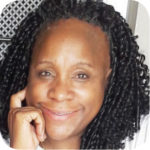
Jackie Wilson Asheeke
I read an interesting opinion piece in the Namibian from Elifas Nghtomoka about the criminalization of poverty. It is a fact of life in Namibia that if you are poor and black in Namibia you are guilty until you are proven innocent. This must stop.
The police are extra vigilant against the poor and black particularly in the tin shack suburbs as if that is the only place where crimes happen. People would be shocked about the high levels of criminality that takes place behind the high walls of lovely homes in affluent areas.
Indeed as the young author says, new police cars need to be purchased but services that the people need to live a decent life also need attention. In affluent neighbourhoods, the street lights, paved roads, and normal city services are there. Peri-urban sections of town (where the overwhelming majority live), are ignored.
Everywhere I have ever lived, the marginalized, under-served and the poor are always the underdogs. The white, rich and powerful get away (often unseen) with paedophilia, domestic abuse, driving drunk, drug use, rape, tax evasion, embezzlement, assault, money laundering and serial murder. These are not just crimes of the poor. And yet, a black man that steals a t-shirt is jailed for years.
The military crime patrols (Operation Kalahari and the like) only affected poor black sections of town. The current police presence during the pandemic is similarly deployed. This gives the sense that crime prevention is all about beating the crap out of poor folks in the peri-urban areas. Could it be that the police are afraid of the masses of the people and act violently as a pre-emptive strike?
We all know that if a car alarm goes off, everyone looks to whatever black person is around as the possible cause. A white man who actually did smash the window and steal a laptop from the back seat of the car can walk away whistling. He doesn’t even have to hide the laptop he stole. His whiteness is his shield. Meanwhile, the police are virtually strip-searching anyone black that is nearby as they look for the laptop. In Namibia, this is law enforcement.
I stand in line at stores and watch the black workers at cash registers jump to attention when whites step up to be served. Some of those same workers are flat out rude when it is my turn. I believe that many black Namibians unconsciously accept white supremacy at the depth of their core. They see black people, including themselves, as ‘less.’ Many will scream to read this. But, I’ve lived long enough to see this in action many, many times.
Self-hatred is a negative seed planted during the apartheid days or from their parents who were raised to fear whites. Those in power from the previous dispensation worked very hard for decades to make self-hatred by blacks, a reality. It is not surprising that it is taking so long for people to wake up and see their inner power.
This translates to the black police officers on duty within the black community and how they treat the public. They also accept blacks (including themselves) as second class citizens; so, they act on it as they do their jobs.
Police will swarm black sections of town and hand out fines (that people have no money to pay), arrest people, beat and harass them routinely. But, in affluent sections of town, not one cop car will be seen. If one does decide to pass through by luck, they target the few blacks on the street for their attention whether warranted or not.
The other day, I had my mask around my neck and forgot to put it on when entering the store. No problem; I was reminded and I gratefully complied. Right behind me, a white man with no mask AT ALL, walked right into the shop to “quickly buy my newspapers” (exactly what I was doing). The staff at the door and the cash registers said and did nothing. To them, it was no big deal; he was white and untouchable; I am black and the rules apply to me. This is the usual treatment in Namibia. This kind of imbalance has happened to me often.
Like Dr King, I wish the day would come when people will not be judged by the colour of their skin. That goes for Namibian police who assume blacks are bad and potential criminals on first sight.
Equal law enforcement is required. Covid-19 does not separate its infective potential on the basis of colour or economic status.



